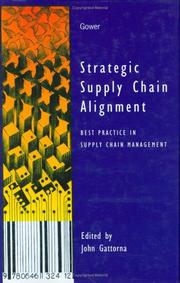| Listing 1 - 5 of 5 |
Sort by
|
Book
ISBN: 981108419X 9811084203 Year: 2018 Publisher: Singapore : Springer Singapore : Imprint: Palgrave Macmillan,
Abstract | Keywords | Export | Availability | Bookmark
 Loading...
Loading...Choose an application
- Reference Manager
- EndNote
- RefWorks (Direct export to RefWorks)
Raising the Dust explores the relationship between human and ecological health through the lens of African traditional medicine, as practiced in the south of Malawi. The book employs an ethnographic methodology using the primary methods of semi-structured interviews and participant observation. The fieldwork for the research was conducted in the Mulanje Mountain Biosphere and the findings are presented as a narrative exploration of insider and outsider positions, in this context. The conceptual framework for the book encompasses a broad range of ecological ideas, focussing mainly on traditional ecological knowledge and radical ecology. The holistic theoretical framework for the book emerges in a grounded way from out of the fieldwork experience. The book is written in plain language and will appeal to anyone interested in holistic health outlooks, particularly cross-cultural health and wellbeing narratives.
Traditional medicine --- Ethnic medicine --- Ethnomedicine --- Folk medicine --- Home cures --- Home medicine --- Home remedies --- Indigenous medicine --- Medical folklore --- Medicine, Primitive --- Primitive medicine --- Surgery, Primitive --- Alternative medicine --- Folklore --- Medical anthropology --- Ethnopharmacology --- Medical anthropology. --- Ethnology. --- Alternative medicine. --- Medical Anthropology. --- Cultural Anthropology. --- Complementary & Alternative Medicine. --- Complementary medicine --- Healing systems --- Systems, Healing --- Systems, Therapeutic --- Therapeutic systems --- Medicine --- Integrative medicine --- Cultural anthropology --- Ethnography --- Races of man --- Social anthropology --- Anthropology --- Human beings --- Medical care --- Anthropological aspects --- Complementary medicine.
Digital
ISBN: 9789811084201 Year: 2018 Publisher: Singapore Springer Singapore :Imprint: Palgrave Macmillan
Abstract | Keywords | Export | Availability | Bookmark
 Loading...
Loading...Choose an application
- Reference Manager
- EndNote
- RefWorks (Direct export to RefWorks)
Raising the Dust explores the relationship between human and ecological health through the lens of African traditional medicine, as practiced in the south of Malawi. The book employs an ethnographic methodology using the primary methods of semi-structured interviews and participant observation. The fieldwork for the research was conducted in the Mulanje Mountain Biosphere and the findings are presented as a narrative exploration of insider and outsider positions, in this context. The conceptual framework for the book encompasses a broad range of ecological ideas, focussing mainly on traditional ecological knowledge and radical ecology. The holistic theoretical framework for the book emerges in a grounded way from out of the fieldwork experience. The book is written in plain language and will appeal to anyone interested in holistic health outlooks, particularly cross-cultural health and wellbeing narratives.
Ethnology. Cultural anthropology --- Physiotherapy. Alternative treatments --- etnologie --- farmacologie --- culturele antropologie --- antropologie --- alternatieve geneeswijzen

ISBN: 093584211X Year: 1996 Publisher: Equine Research Inc.,
Abstract | Keywords | Export | Availability | Bookmark
 Loading...
Loading...Choose an application
- Reference Manager
- EndNote
- RefWorks (Direct export to RefWorks)

ISBN: 0566078252 Year: 1998 Publisher: Aldershot Gower
Abstract | Keywords | Export | Availability | Bookmark
 Loading...
Loading...Choose an application
- Reference Manager
- EndNote
- RefWorks (Direct export to RefWorks)
supply chain management --- logistiek --- 657/700 --- logistiek - algemeen --- Business logistics --- Delivery of goods --- 658.7 --- Supply chain management --- Industrial management --- Logistics --- 658.7 Buying. Purchasing. Procurement. Management of stock --- Buying. Purchasing. Procurement. Management of stock --- Management --- Business logistics. --- Management.
Book
Year: 2017 Publisher: Washington, D.C. : The World Bank,
Abstract | Keywords | Export | Availability | Bookmark
 Loading...
Loading...Choose an application
- Reference Manager
- EndNote
- RefWorks (Direct export to RefWorks)
This paper makes several contributions. First, it presents a 'guidance note' on the framework for Social Registries, anchoring the definition of these systems in their functions along the Delivery Chain and their social policy role as inclusion systems, while clarifying terminology in a manner that is consistent with IT standards in the discussion of their architecture as information systems. Second, it illustrates the diverse typologies and trajectories of country experiences with Social Registries with respect to their (a) institutional arrangements (central and local); (b) use as inclusion systems (coverage, single or multi-program use, static or dynamic intake and registration); and (c) structure as information systems (structure of data management; degree and us of interoperability with other systems). These patterns primarily derive from a review of Social Registries in a sample of 20 countries), (Azerbaijan, Brazil, Chile, China, Colombia, the Dominican Republic, Djibouti, Georgia, Indonesia, Macedonia, Mali, Mauritius, Mexico, Montenegro, Pakistan, the Philippines, Senegal, Sierra Leone, Turkey, and Yemen). The paper also draws on experience in other countries (Kenya, Rwanda, Nigeria, Egypt, Jordan, Vietnam, India, Estonia, Belgium, the US, Canada, Australia, and others) to illustrate specific points. Third, this paper develops a basic 'Assessment Tool' covering the core building blocks of Social Registries using a 'checklist' style of questions. Given the wide diversity of Social Registries in both their role in social policy and in their architecture, the approach is not prescriptive: it does not advocate for any specific model or blueprint for Social Registries. Any diagnostics or recommendations that emerge from use of this Guidance Note and Assessment Tool will be country specific. Some key take-away messages include: (a) the importance of recognizing both the role of the 'front lines' for outreach, intake and registration (Social Registries as inclusion systems) and the 'back office' functions of Social Registries as information systems; (b) the potential power of Social Registries as integrated and dynamic gateways for inclusion; (c) the recognition that Social Registries are generally part of end-to-end systems for specific programs, integrated social protection information systems, and/or even 'whole-of-government' approaches; and (d) there is significant diversity in the typology and trajectories of Social Registries across countries and over time.
| Listing 1 - 5 of 5 |
Sort by
|

 Search
Search Feedback
Feedback About UniCat
About UniCat  Help
Help News
News